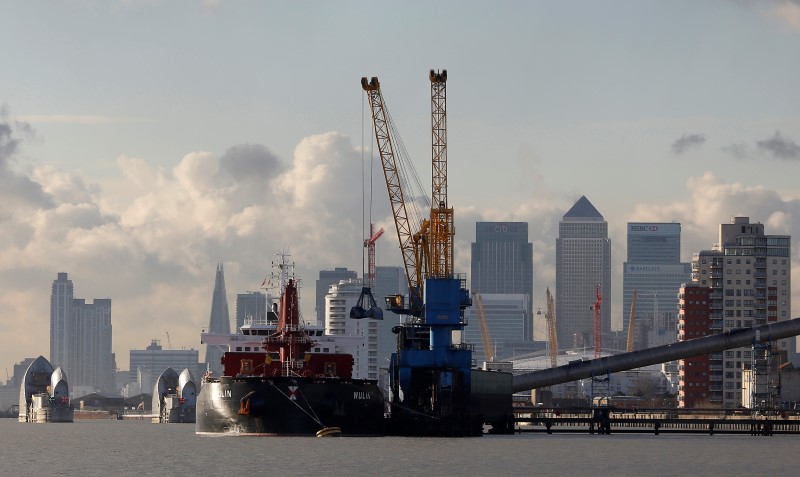By Jonathan Cable
LONDON (Reuters) - The recent slowdown in British economic growth is largely due to uncertainty over the upcoming referendum on whether the country remains within the European Union, according to an overwhelming majority of analysts in a Reuters poll.
Britons go to the ballot box on June 23 to decide whether they want to walk away from the 28-member union, and forecasters taking part in Reuters polls have been almost unanimous in saying if they do, then the country's economy would suffer.
In the first three months of this year gross domestic product expanded 0.4 percent, down from 0.6 percent at the end of last year. According to the latest poll, taken in the past week, GDP will grow just 0.3 percent this quarter.
All but four of the 21 economists in the poll who answered an extra question said the slowdown was "quite a bit" or "nearly all" due to uncertainty ahead of the referendum. Four said "not much" and none said "not at all."
"Uncertainty, uncertainty, uncertainty - that's the key word," said Mikel Milhoj, economist at Danske Bank.
Industrial output rose by its biggest amount for nearly four years in April, in contrast to other signs of a slowdown, but policymakers and forecasters are likely to take the strength of this volatile series of data with a pinch of salt.
Most respondents to the extra question were based in Europe as Britain's electoral law places strict limits on political statements during official campaign periods and many regular survey respondents based in the UK declined to reply.
Two opinion polls earlier this week said the campaign for Britain to stay in the EU held a narrow lead, in contrast to surveys released on Monday which showed the campaign for Brexit ahead. Betting odds on Tuesday implied a 72 percent chance of staying in.
With economic growth slowing, uncertainty swirling and inflation well below target, the Bank of England will not change Bank Rate from its record low 0.5 percent when it meets on June 16, all of the 44 economists polled said.
As in recent polls, the median suggested it would be early next year before the Bank adds 25 basis points. Nineteen expected Bank Rate at the start of April at 0.5 percent while 20 said it would be higher.
That initial move, which would be the first increase in almost a decade, will be followed by an identical hike in the third quarter. After ending 2017 at 1.00 percent, Bank Rate will only rise 50 basis points the following year.
There is only a one-in-four chance the Bank will have raised rates by the end of this year. By the end of March there is a 55 percent likelihood and by the middle of next year a 65 percent chance that it will have raised Bank Rate.
However, those forecasts could be turned on their head.
"Should the UK vote to leave we would anticipate a sharp downward repricing of British interest rates hinting that at the very least a 25 basis point rate cut is on the cards," said Thomas Bloomfield at 4CAST.
Giving the Bank plenty of room to act slowly, if at all, inflation was just 0.3 percent in April, nowhere near the Bank's 2 percent target, and the poll said it would probably be 2018 at least before it gets close.
Prices will rise on average 0.7 percent this year, 1.7 next and 2.0 percent in 2018, medians suggested.

From July, GDP growth is expected at 0.5 percent per quarter through much of next year, the poll found, although many noted their forecasts were based on the assumption that Britain remains within the EU.
(Polling by Shaloo Shrivastava and Hari Kishan; Editing by Ross Finley and Hugh Lawson)